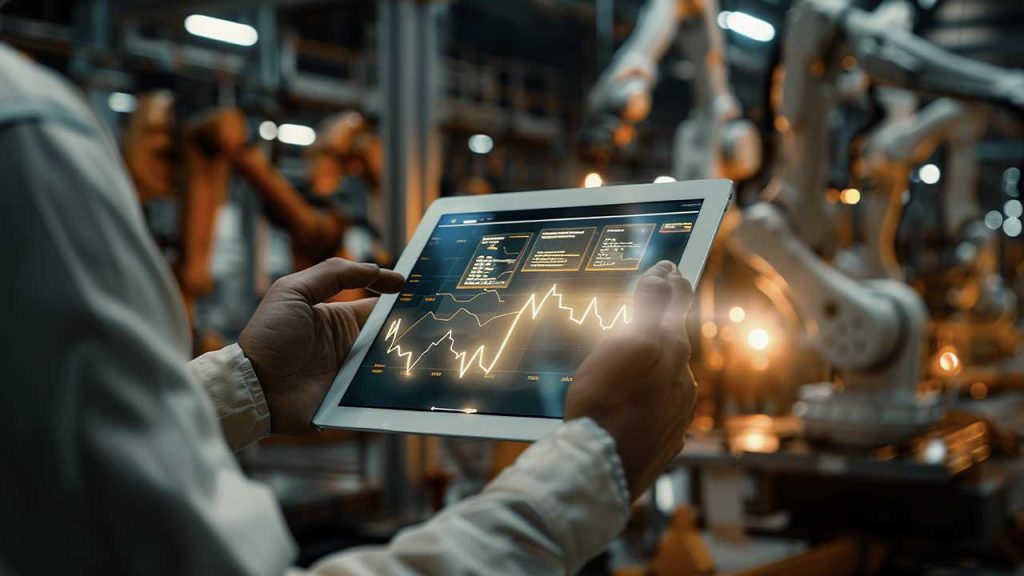Industry Digitalization, Data-driven Process Optimization and Environmental Best Practices
In these times, there is no doubt that the advancement of digitalization in industry makes possible connected products and processes that help people, materials, energy, plant and equipment to be more productive and efficient. The repercussions for business processes should impact both the economy and the environment.
This article covers various experiences and case studies in the industrial sector (specifically industrial process and energy) for the use of IIoT (or IoT), SCADA, MES and other data series big data generators, AI/ML and other digital tools, in industry and will present best practices, methodologies and results. The data-driven culture is explored, especially to understand the drivers, barriers and opportunities, toward a more deep deployment in the industrial world.
Industry Digitalization in Manufacturing
We can reference the articles Porter and Heppelmann (2014, 2015) wrote about how smart connected products are changing the nature of competition and the industrial structure.
In the first one, Porter & Heppelmann (2014) examined the implications external to the firm, looking in detail at how smart, connected products affect competition, industry structure, industry boundaries, and strategy. In this article, it is affirmed that no manufacturer can survive the coming years without introducing intelligent and connected products into its catalog.
In the later work, Porter and Heppelmann (2015) remarked on the value of data to improve design, Operational Efficiency (OE), and maintenance, among other benefits in the use of data. They pointed out that the combination of monitoring data and remote-control capability creates new opportunities for optimization. Algorithms could substantially improve product performance, utilization, and uptime, and how products work with related products in broader systems, such as smart buildings and smart farms. Then, the combination of monitoring data, remote control, and optimization algorithms allows autonomy. Products can learn, adapt to the environment and to user preferences, service themselves, and operate on their own.
AI in Manufacturing
After some years passed since those articles were written, it is possible to see the evolution in a recent article by Tom Davenport (2020), which is based on a research by Deloitte, on the use of AI tools in Industry. It highlights how barriers to the adoption of artificial intelligence tools have decreased. A survey of more than 2,727 global executives from nine countries showed all of their organizations have adopted AI. The key facts that emerged from the article is that the respondents feel that implementing AI is getting easier, and will continue to do so.
There are two key insights from this article. The first is the preference for buying ready-made AI technology over building it. Indeed, at some point it will be difficult not to buy. 74% of these executives agreed that “AI will be integrated into all enterprise applications within three years.” In terms of today’s practice, 50% say they will “buy all” of their AI capabilities. The second key insight centers around the risks the adopters see with AI. Some of the specific risks that most concerned respondents were cybersecurity issues, AI failures that might affect business operations, misuse of personal data, and regulatory changes involving AI.
Big Data and Analytics in Manufacturing
A third reference is a report by McKinsey (2011). This work considers that although the manufacturing industry has registered high productivity and efficiency levels during the 1990s, it can still reach improvements through Big Data in the efficiency of design and production, product quality, marketing, promotion and distribution. According to the study, seven potential levels were identfied in which the sector can obtain improvements thanks to Big Data throughout the entire value chain which can be grouped into four areas: investment and development; reduction of uncertainty through projections of demand and supply chain planning; efficiency in production from simulation techniques, sensors, etc .; and marketing strategies and services after sales.
This article provides evidence of the state of the art and the importance of some of the disciplines of Industry 4.0 — big data and analytics in manufacturing — showing how data science in manufacturing can contribute to create value and business benefits for industrial process companies, through the development of analytical models to explain and predict process behaviors.
Porter & Heppelmann (2014) established that the foundation for competitive advantage is operational effectiveness (OE), which requires embracing best practices across the value chain, including up-to-date product technologies, the latest production equipment, and state-of-the-art sales force methods, IT solutions, and supply chain management approaches.
This work aims to look into this statement and search for ways to work the maximization of OE by using data.
The digital evolution crosses all areas of performance. Particularly in Industry, where competitiveness is present in all types of companies, especially in the SME world.
Since the emergence of the Toyota production model and the evolution to Lean Manufacturing, the teachings of Deming, Kaplan and Norton, among others, a large number of methodologies for process optimization appear. So we know and can apply a huge toolkit to generate changes that allow us to achieve structural competitiveness and to be able to perform with solvency in global value chains.
Digital Tools in Manufacturing
Traditionally, the critical issue has been the methodology to be used in the implementation of the tools in the workshop or office. From leadership, creativity, and motivation, among others, we have seen Kanban cards on paper, dashboards on blackboards, printed checklist sheets, among others. Today there are digital tools that allow us to have the data at our fingertips, and this is literal considering that we can see the information through the mobile phone wherever you are.
We can also cite Preventive Maintenance and its benefits, currently it is possible to have real-time data on the operation of the equipment, receive alarms in the event of possible incidents, and anticipate the breakdown of the machine from sensors and online data.
The evolution of ICTs makes it possible to deploy tools in a friendlier way and with lower entry barriers for any type of company, especially when we refer to SMEs. There are issues associated with change management that must be taken into account and appropriate measures taken so that the tool to be implemented achieves the expected results, however, access to the tool is increasingly available to companies. Either by reducing software and hardware costs and/or new business models offered by digital tool providers that makes it easier to access the technological tools, reducing Total Cost of Ownership (TCO).
Finally, continuous improvement also becomes a reality, either from the data that sensors and data could provide us online in a SCADA, IoT, or IIoT scheme. The data in time can be used to work with Data Analytics methodologies and identify opportunities for improvement, then later it’s possible to advance with an Artificial Intelligence (AI) system from training the machines or devices to work with certain patterns or situations in the production process. Digital evolution is a one-way path for companies that dare to adopt it.
References
- Porter, J. Heppelmann. How Smart, Connected Products Are Transforming Companies. Harvard Business Review. Nov. 2014
- Porter, J. Heppelmann. How Smart, Connected Products Are Transforming Companies. Harvard Business Review. Oct. 2015
- Davenport, Is AI Getting Easier?, 2020 Forbes Media LLC
McKinsey (2011), “Big data: The next frontier for innovation, competition, and productivity”, McKinsey Global Institute.
About the Author
 This article was written by Federico Walas Mateo the Co-Founder and Ceo of Chaska Analytics. Making Process Optimization by data driven solutions real. Working with Industry 4.0 strategies and tools to transform factories into smart facilities.Federico Walas Mateo received his MSc. in Advanced Manufacturing Systems from Kingston University, UK, he currently works as Industrial Engineering coordinator at the Institute of Engineering and Agronomy, Universidad Nacional Arturo Jauretche (UNAJ).
This article was written by Federico Walas Mateo the Co-Founder and Ceo of Chaska Analytics. Making Process Optimization by data driven solutions real. Working with Industry 4.0 strategies and tools to transform factories into smart facilities.Federico Walas Mateo received his MSc. in Advanced Manufacturing Systems from Kingston University, UK, he currently works as Industrial Engineering coordinator at the Institute of Engineering and Agronomy, Universidad Nacional Arturo Jauretche (UNAJ).



